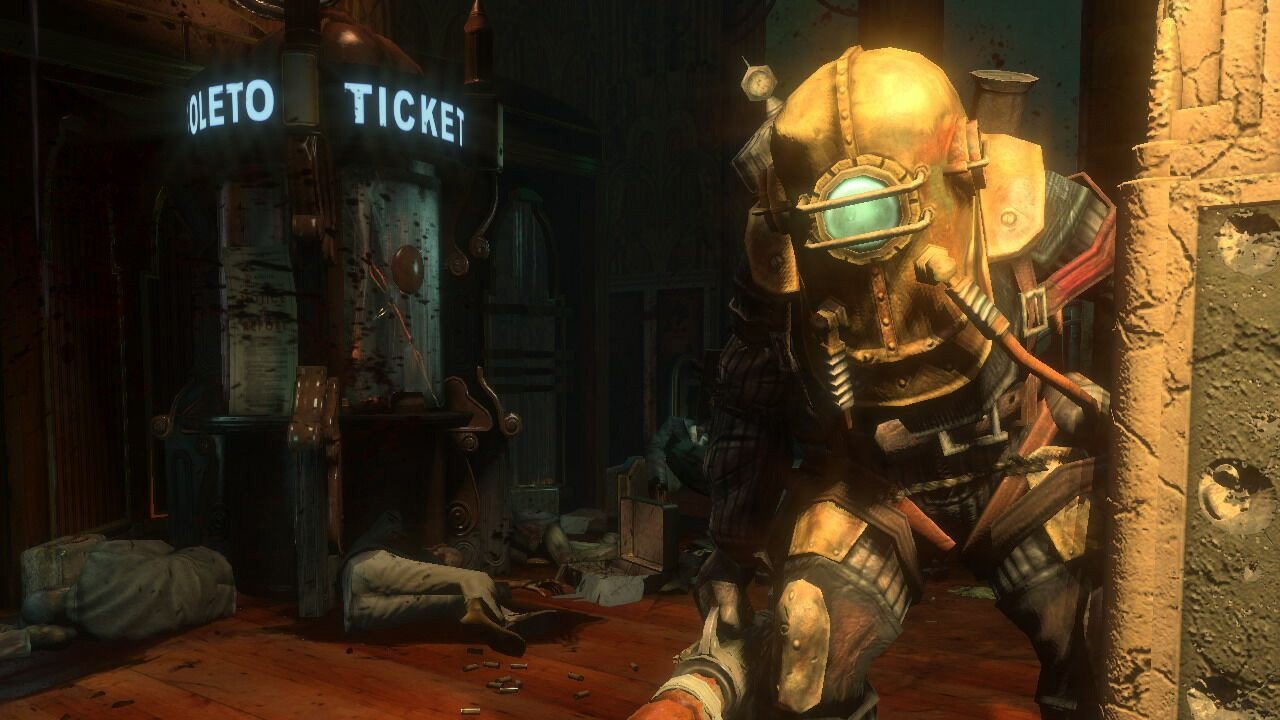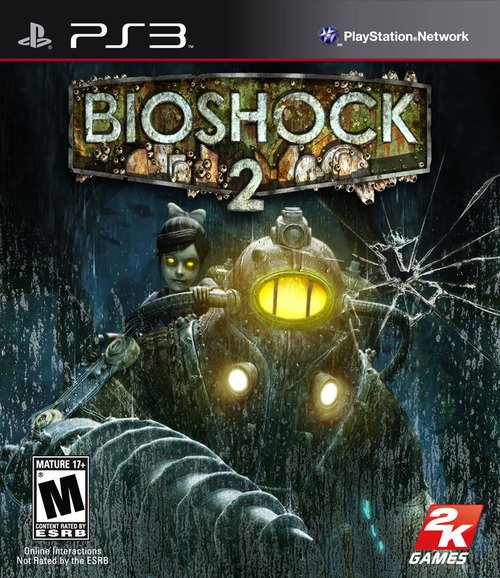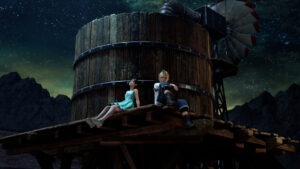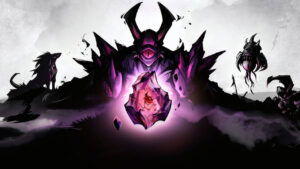Returning to the ruined grandeur of Rapture, BioShock 2 dives deeper into philosophy, morality and madness — proving that this sequel is no mere echo. If the creation of a dystopian underwater world can ever be labelled an “uphill battle,” then BioShock 2 certainly qualifies. Set once again in the submerged, alternate-history city of Rapture, this first-person shooter is seen through the eyes of a reactivated Big Daddy — a half-human protector who awakens with no memory of the decade-long fallout that followed the cultural watershed of the original BioShock. But can this newly awakened hero recapture the nightmarish imagery and dreamlike success of its near-mythic predecessor?
For starters, the visual style of BioShock 2 masterfully recaptures the decayed Art Deco splendour of Rapture — the experimental utopia torn apart by civil war and overindulgence. Despite a decade of decline, the city retains echoes of its former beauty: soaring glass walls, opulent halls covered in grime and rot, and a makeshift aesthetic combining brass, wood and rusted metal. It’s a place both alluring and terrifying.
But beyond the visuals, it’s the story that shines. BioShock 2 not only returns to Rapture but also provides players with a compelling reason to fight through its haunted halls. In the aftermath of Andrew Ryan’s death, a new leader rises — Sophia Lamb, a philosophical opponent of Ryan’s individualist vision. In her collectivist worldview, the needs of the many outweigh the needs of the few, and the citizens of Rapture have formed “The Family,” a zealous cult that preaches brutal selflessness.
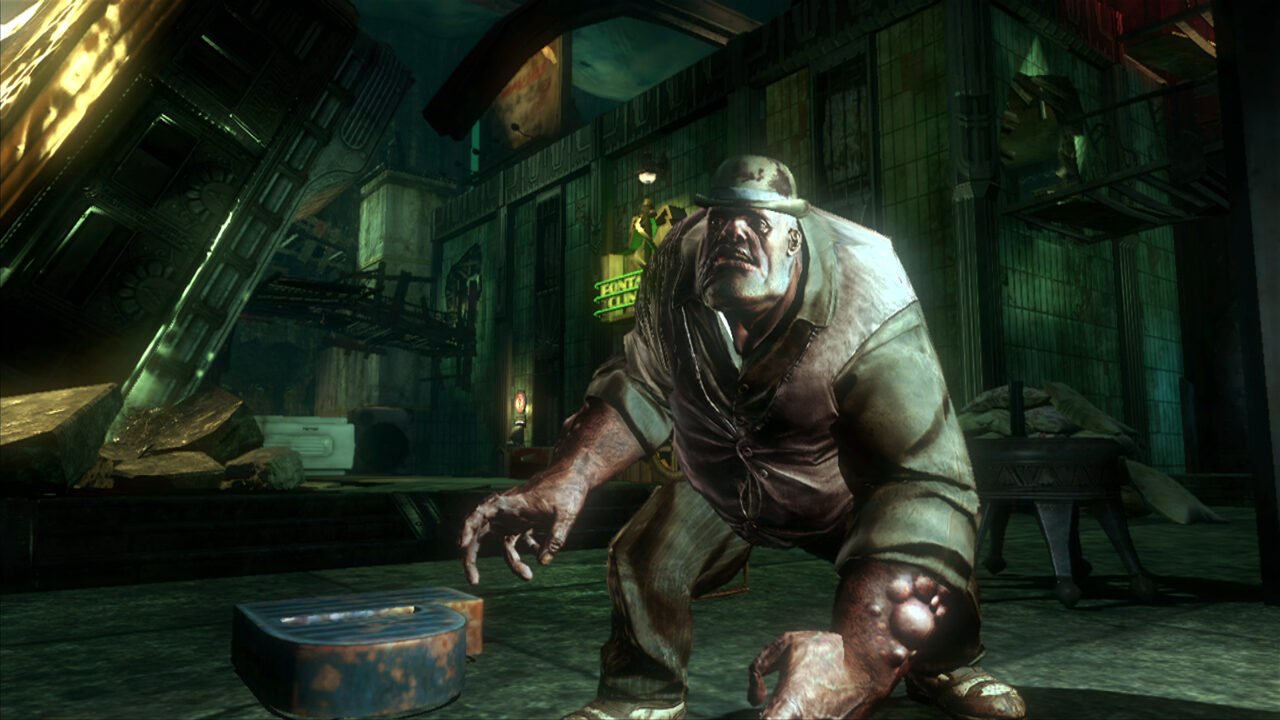
Against this backdrop, players assume the role of Delta — a prototype Big Daddy — who must rescue Eleanor Lamb, Sophia’s daughter and the first Little Sister to be successfully bonded with a Big Daddy. As the narrative unfolds, players unravel the truth behind Rapture’s collapse and witness how even noble political ideals can be corrupted and weaponized.
For an underwater shooter, BioShock 2 reaches for some surprisingly deep themes. Morality is woven into the gameplay itself. As Delta, players must make difficult ethical choices — whether to save or harvest the Little Sisters, and how to deal with key figures from Rapture’s past. These decisions directly impact the game’s outcome and are more nuanced than those in the original. Many of the dilemmas are supported by substantial backstory, highlighting the complexity of each character and the layered motivations behind the city’s decay.
“BioShock 2 is a vast improvement in both visuals and gameplay.”
Although the story is strong, BioShock 2 is not without minor issues. Some characters, such as Sinclair and Dr. Lamb, seem mysteriously untouched by the chaos that has ravaged Rapture. Likewise, the scattered audio diaries — though narratively rich — appear conveniently intact despite the destruction around them. Still, these are small complaints in an otherwise meticulously crafted experience.

In terms of combat, BioShock 2 is far more fluid than its predecessor. With an expanded arsenal of weapons and gene-modifying Plasmids, the game encourages experimentation and strategy. For example, combining ice-based powers with a heavy weapon can shatter even the toughest opponents. As a Big Daddy, Delta begins with a powerful drill, which is brutally effective, though prone to overheating. Over time, players gain access to Gatling guns, rivet guns and spearguns, all with multiple fire modes and ammo types. Each weapon feels distinct, and combat never feels like a chore.
The game’s multiplayer component is another pleasant surprise. Where the original lacked online features, BioShock 2 includes well-designed multiplayer modes such as Civil War and Capture the Sister. These modes offer a satisfying break from the main campaign, even if their long-term appeal remains uncertain.
In the end, BioShock 2 is a vast improvement in both visuals and gameplay. Combat is smoother and more engaging, the story is more focused, and the ending avoids the disappointing pitfalls of the original. While it may not completely escape the shadow of its groundbreaking predecessor, BioShock 2 stands tall as a worthy continuation — and in many ways, a better game.
